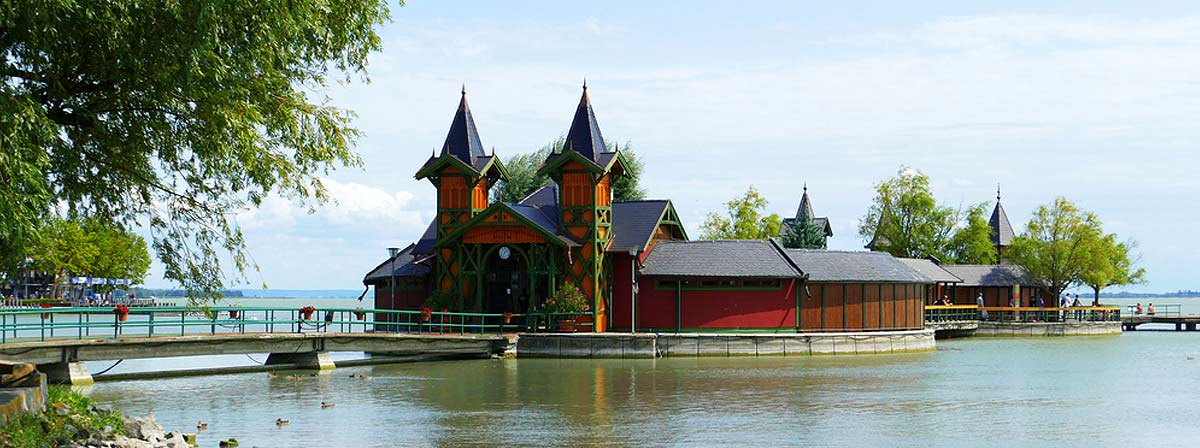
My Hungarian wife and I, a mere Englishman, moved “back” to Hungary after four years in the UK. While we had the advantage of having Hungarian family, and so were not quite alone, we still had to do all the things a person moving to Hungary would normally do — get legal help, find a job, buy a house.
Half the fun of moving somewhere new is that things are a bit different, but it’s always the small things that trip you up. So I’ve been asked to write some notes on how, after five years, I’ve rather come to love the place, and share some tips based on what we’ve learned along the way. I hope it will encourage you to come, and realise, it wasn’t such a daft idea after all.
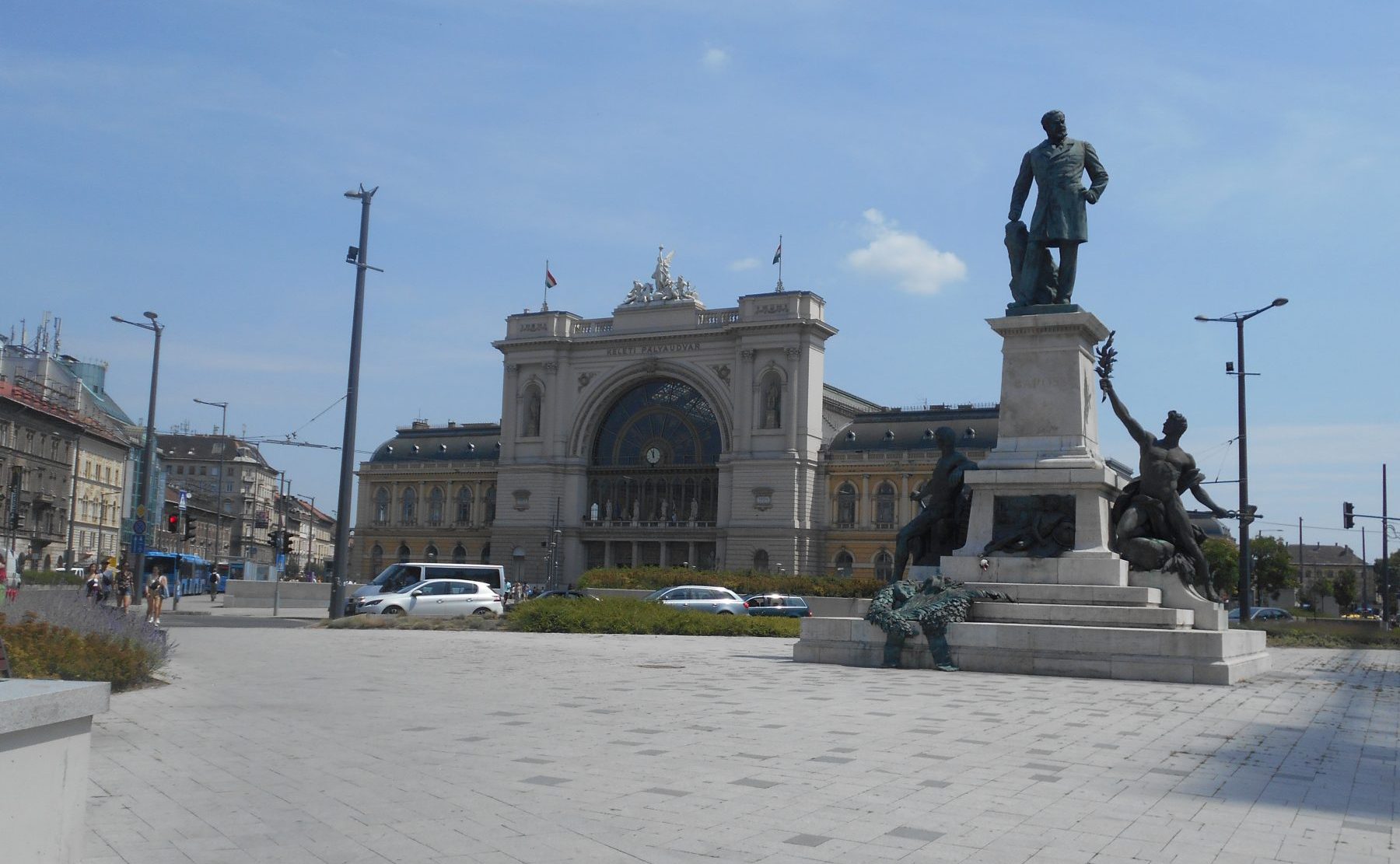
Since you’re looking to hire a moving company, I can assume you have an address for your removal service – the destination you want to move to. As soon as you can, apply in Hungary for an address card (lakcímkártya).You’ll need this if you want to buy a car, get a job, or open a bank account. Fortunately, it’s easy to get, although like all Hungarian bureaucracy it can take a few weeks. If you’re lucky, the office will issue it on the spot, but many will process it later and send it to you by post.
Immigration and naturalization are handled by BMBAH. Providing everything is above-board, the process is relatively painless and hassle-free, but it can take a little time. Take care that they get your name and address right (Foreign names are put in their native order, not Hungarian name order with surname first). Representatives speak English, but might need some help in spelling place names, personal names and so on. Once it’s registered, you’re more or less stuck with it because you’ll want all the records to match. They spelt my mother’s forename wrong (they are keen on knowing your mother’s maiden name), but it never seems to have done any harm.
If you’re renting, you’ll need a letter from your landlord, witnessed by two independent people, which gives you permission to live there. You don’t need a lawyer or notary public to do this. If you’ve bought a property in Hungary, you can take the official deed for the property, but these only have official status for ninety days, so don’t hang about.
Take it to your district town hall and fill out a form there. They will issue you a card or put one in the post later. They should also give you a tax number (on another laminated card), which you’ll need if you’re intending to work.
The first time you apply, you must do it at the local town hall (varosháza) — in Budapest, there’s one in each district. After that, if you lose it or change address, you can change it on the spot at any other office, with proof of identity (such as your passport). In general, it’s best to take copies of these things — indeed, when you go to any Hungarian office take every bit of paperwork you have. They won’t tell you you need it until you have waited a few hours to see a clerk, so take everything with you. Sometimes that still doesn’t work. For example – the authorities got my house number wrong somehow and sent the cards to an address far up the street and I never got it. When I moved to my current address, they couldn’t find it on their computer, because it has an “ä” in the street name, which is not part of the Hungarian alphabet. Smile and be patient. Eventually they found it, under “ő”.
For permanent residence or citizenship, the clock starts from the date of issue of your address card. Usually, permanent residence takes five years, but it can be shorter if you have a Hungarian family. To get citizenship, you’ll also need to be able to speak and understand everyday Hungarian.
Once you have the address card, you can transfer utility bills and other stuff into your own name. Take care to make sure they have your names correctly spelt, and in the right order. Hungarians put their surname first, but they put the forename first on names that are not Hungarian. An exception is Adam Clark, a Scotsman who built the first bridge across the Danube in Budapest: he has the honour of being called Clark Adam by Hungarians.
If you plan to work in Hungary after your removal, you’ll need to register with a doctor, who will give you a cursory examination to say you are fit for work. Often you’ll need to see a company doctor before starting a job – again, the examination is somewhat minimal and short of being clinically dead you are bound to be signed off fit for work.
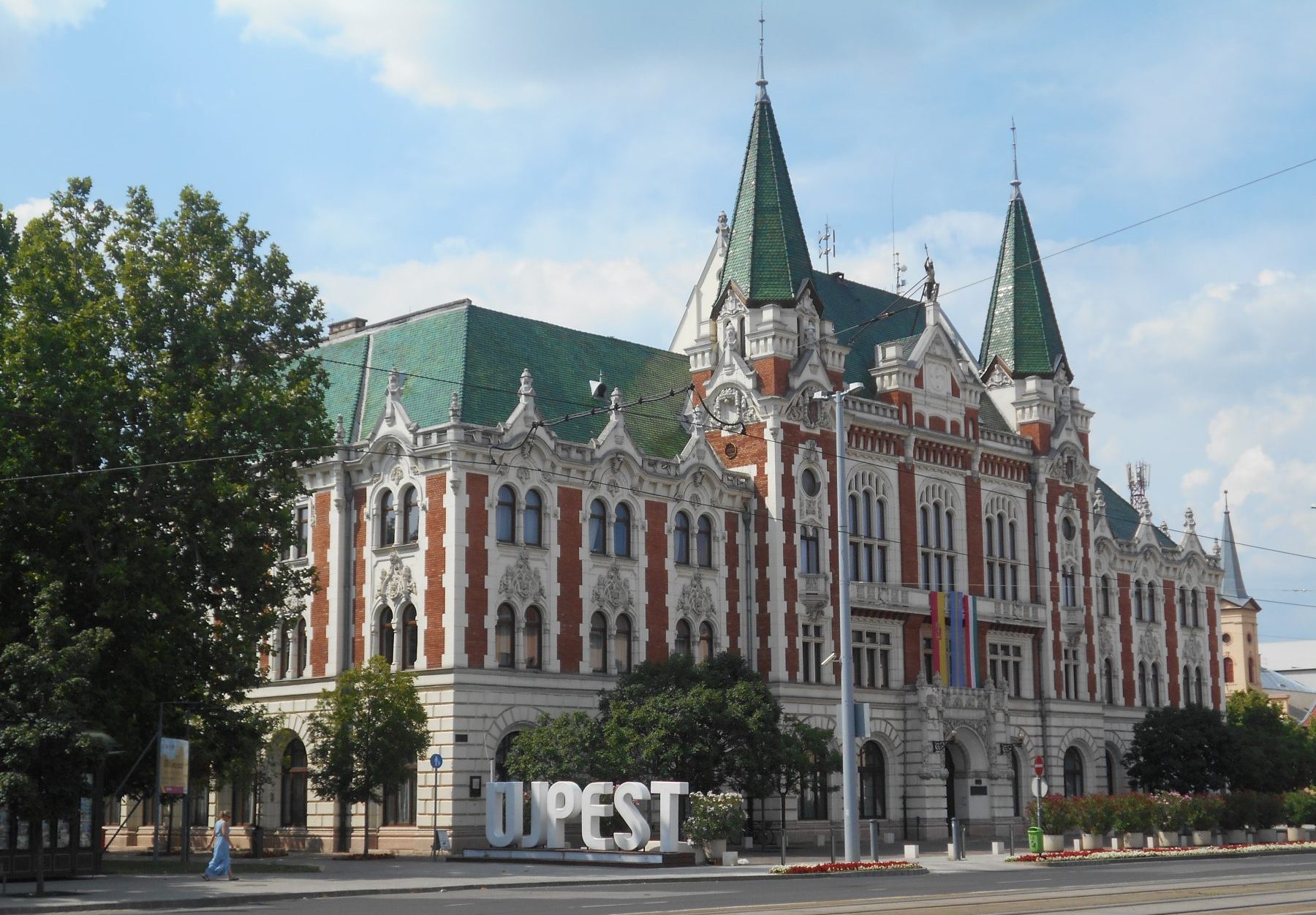
The Hungarian currency is the forint. The highest denomination of a banknote is 20,000 Forints, which is equal to about 55 pound sterling (at the time of writing this in 2019).
To open a bank account in Hungary, you’ll need your address card and some ID (such as a passport). I use OTP Bank because they have the most branches and ATMs ([pénz]automata), and also have English-speaking staff in my local branch (but not in some of the main branches). My wife uses Budapest Bank and Takarék. They all have internet banking, and you can pay bills, set up regular transfers and so on this way.
Banks usually charge fees on everyday transactions, including on cash withdrawals (although by law the first 150.000 Ft each month must be free). Some may have free withdrawals if you pay for a premium account. You can have an account denominated in euros if you wish, but not in other European currencies such as pound sterling. It can be worth it if you expect to have a lot of dealings in euros, as a hedge against currency fluctuation.
Most stores, even small ones, now accept card payments, including contactless payment (PayPass). In larger stores, you can often pay with euro banknotes, but this will be exchanged at the store’s own rate, typically worse than you’d get at a bureau de change. It can be useful in an emergency, but bear in mind that you’ll get your change in forints.
Cash purchases are rounded up or down to the nearest 5 Ft (approximately €0.02) on the total — there are no coins smaller than that. Card purchases are to the exact forint. Some stores used to have a minimum purchase for cards, of 500–1.000 Ft, but this is rare now. The largest denomination banknote is 20.000 Ft and smaller shops are reluctant to take them: indeed, some shopkeepers grumble at smaller notes. It’s a good habit when taking cash from an ATM to request an amount such as 9.000 Ft so you have smaller denomination notes. (All denominations are the same physical size.)
Electronic transfers between Hungarian banks take a couple of hours; but within the bank they are instant. Transfers will only be made during bank business hours, so if you make a payment on a Friday evening it won’t arrive until Monday morning.
Banks operate a queuing system where you take a ticket and wait for your number to be called. Counters only serve certain kinds of tickets, so you have to guess what kind of service you want. Another reason I use OTP Bank is there’s an “English” ticket where I get it all done at one counter, often (it seems to me) jumping the queue.
Larger post offices (Posta) operate a similar system, but not small ones, so it’s easier to use those and just wait in one queue, like sensible British people do. You can pay bills in the post office, which is useful if you need proof of payment as you get a stamped counterfoil, and the Posta also offers its own bank account. Hungarian mail all goes through one sorting office, in Budapest, so if you send a letter from Nyíregyháza to Nyíregyháza it will have a merry journey across the country and back. Standard post takes two or three days to get delivered, but there are the usual international courier services too. You can only buy postage stamps in the post office, and mail is charged at a wide variety of prices, so I am not sure what gets put in postboxes.
In Hungary, there are bureaux de change in most shopping centres, at railway stations, airports, and so on. Be wary of the ones you’re most likely to see first after moving to Hungary, the ones in the main railway stations and airports, as they can have an awful exchange rate. Instead, go a little distance and you will find a bureau with a much better rate. You shouldn’t need any identification, but take some just in case. Some bureaux charge commission — which of course is just a disguised way to inflate the rate — some don’t. To my surprise, Western Union seems to offer good rates with no commission — as a huge international brand, you’d expect them to be more expensive — but shop around. It’s fine to exchange currency privately, at whatever rate you agree. If you’re given a choice when paying by card, always choose to pay in forints, since your card issuer will almost certainly convert it at a better rate than the retailer.
Many privately-operated ATMs will dispense euros. I have no idea why you would want that. The rate is terrible and then you have to convert them back to forints. If you need euros, go to the bank or a bureau de change.
I’m not going to say much about restaurants here. There are many and they are just like restaurants anywhere. Most of the restaurants in the tourist areas of Budapest serve imitation Hungarian food. The Huszár off of John Paul II Square in Budapest is very good for honest, reasonably priced Hungarian food — but avoid evenings as they tend to get in a gypsy band to make a racket and spoil your evening. They will sing at your table about how Hungary lost every battle it ever fought. Hungarian battle songs are always about this. Even their national anthem moans about them forever being on the losing side.
Hungarians tend to have their main meal in the middle of the day. If they are working, this will often be from a work’s canteen, or from a gyorsetterem – “fast restaurant” – a sit-down meal with two or three courses of Hungarian cuisine. Employers often subsidise this, one way or another through a tax concession generally known as “caftéria” – the major banks supply cards that can be used in these places and elsewhere, and they come in loads of varieties, some allow you to spend in shops but only on basic foods, some on anything. If you’re employed, you’ll get a substantial proportion – perhaps 30% – of your income this way. The catch is you can only spend it on certain things, so the cat goes hungry while you drink pálinka.
When you move to Hungary you’ll notice that Hungarians just love stews and soups (leves) and gyulas (goulash means “cowboy”, who knew?), and cook lots of it. They love paprika. It can be purchased very cheaply, and there are many varieties to choose from mild to hot. There are butchers and bakers everywhere. Pork is a staple, as well as chicken and turkey. Whole chickens from the market will include the offal, feet, beak and everything else. Beef is common but sometimes regarded as expensive, and some butchers will only do pork and chicken. Other meats are much harder to find – mutton is not too difficult, but lamb is very rare. On the plus side, meat is always fresh and has a decent texture and fat content to roast beautifully. Offal is plentiful, so if you like brains or heart, you will find it without any difficulty. Their eggs have the yellowest yolks I have ever seen in Europe, and a roast chicken won’t explode on sight of a carving knife like a British one will.
It would seem there are only two varieties of potato (borgonya/ or in slang krumpli) in Hungary: reds and whites. There are in fact many more, but they will only be labelled as reds or whites, so if you desire a Desirée or will pay the piper to call it a Maris you’re out of luck.
Be it meat or fruit or veg, the freshest, cheapest and best produce is available from local markets. Every district has a local market. In the main towns they operate from Monday to Saturday, and some on Sundays. Outside, they might be one or two days a week. While all will do a good variety, I think some are better than others for particular things. Bosnyak tér market is great for fruit and veg, Lehel tér market for meat and fish. Again, learn to shop around and check prices. You won’t get everything all year round, and there’s no point trying – when it’s at the market it will have been worth the wait. The market will also have bric-a-brac, stalls selling detergents and other household goods, and everything unsaleable in the rest of Europe. Avoid the posh markets in Budapest, they sell inferior products at superior prices. As always, learn to shop around.
There are bakers’ shops (pekseg) everywhere and they open very early, often at 5 am (Hungarians are early to bed and early to rise). As well as fresh bread, they do a large variety of sweet patisserie. During the summer they often sell fagy (homemade ice cream) – if it’s factory-made it’s called jegykrem (jegy means “ice”).
Favourite street snacks are langos or a pizza slice. After moving here you won’t miss the major fast food chains such as KFC, Burger King, and McDonald’s. I think KFC is very expensive by Hungarian standards – you can buy a whole fresh chicken at the market for less than a couple of wings in KFC. These chains tend to use a confusing mix of Hungarian and English on their menus. “Menu” in Hungary means a set meal, e.g. a burger, drink, fries and an ice-cream.
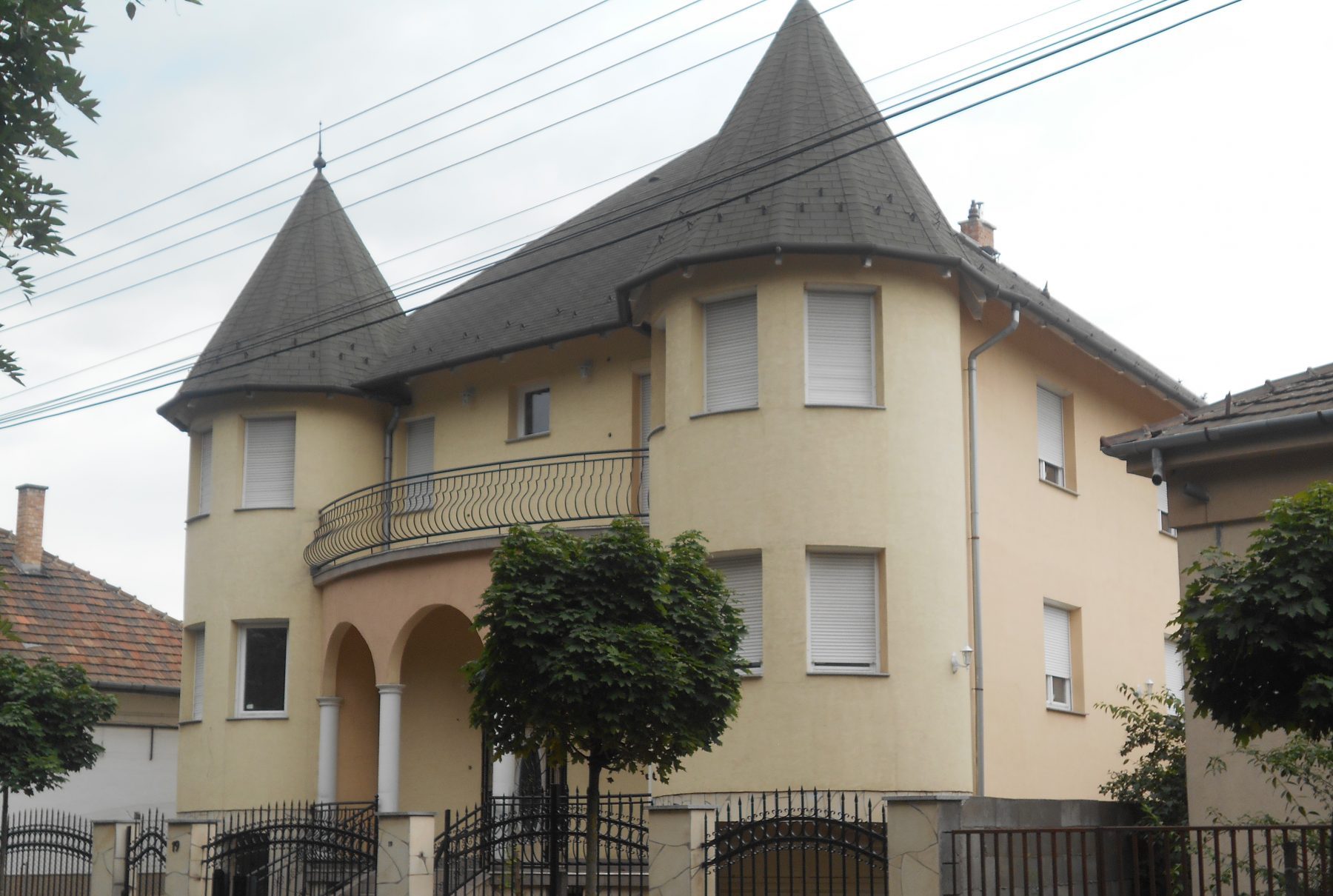
When you first move to Hungary you will probably rent something temporarily while you find a longer-term place. Here are a few tips from a foreigner stupid enough to have bought, sold, and rented property in Hungary.
Budapest is divided by the Danube into Pest, and Buda. Pest is rather flat, almost a floodplain, and has many working-class areas, and it tends to be cheaper to live in. Buda, conversely, is hilly, and the higher up the hill you go, the higher your social status. I live in Pest and walk or cycle most places — hills are way too much trouble.
Many properties are advertised through an estate agent (ingatlan) such as Technocasa, who will put listings on their website. But many others are not and are sold privately, often without advertising except for an ELADO (“for sale”) sign outside. So if you’re interested in a particular location, it can be worth taking the time to go there.
Homes are advertised by the number of “living rooms” they have. Living rooms are basically anywhere you might watch an evening’s telly, but not bathrooms, hallways, pantries, outhouses, attics, basements, kitchens, and so on. So a property that says it has two rooms might actually have eight once those are included. There are also “half rooms” but legislation on this is in a bit of flux – it depends on the size of the room. Room sizes are given in square metres (so a ten square metre room could be 40 metres long and 25cm wide), not the sensible British way of giving length by width.
A peculiar feature of Hungarian architecture is lots of properties have turrets – sometimes large enough to house a room with a panoramic view.
The buyer must pay stamp duty within three months of the sale. Usually this will be 4% of the sale price, but it is possible for the tax office (NÁV) to assess the property at a different value from the sale price (for example, if they think the property was deliberately undervalued to avoid tax). My wife and chose to buy a fixer-upper, after moving to Hungary, and indeed we had a visit from the officials. The tax office did agree that the sale price was reasonable — it may have helped that we kept photographs of the state of the property before we started improving it, had receipts for everything we had done since, and that the living room looked like a DIY store. Asking around, none of our friends had ever received a visit.
Many sellers do not present their properties in the best light, so often you’ll see pictures (or view the place in person) with unkempt rooms and personal items scattered all over. You must see past this. That being said, some properties are just in dire need of repair, so don’t confuse deep problems with untidiness. Hungarian houses are never quite finished, there is always some plaster falling off the outside, or leaking gutters, or missing roof tiles, or bare electrical cables. If you see a building with none of these faults, you won’t be able to buy it, because the government owns it. You needn’t guess, as it will also be flying a Hungarian flag.
It’s common for sellers to take all the appliances, fitted cupboards, and even locks and handles. Make sure you have an inventory of what will be left. Also, make sure that the sellers don’t leave their rubbish for you to dispose of.
Most residential property in Hungary is low-rise – typically a single storey, with perhaps an attic conversion, and perhaps a basement – but in towns and cities there are also apartment blocks typically of five or six storeys with shops on the ground floor, and older, eleven-storey panelház which are prefabricated tower blocks of low quality built in the socialist era. These are cheap and cheerful, but you can hear your neighbours’ neighbours farting, and they get extremely hot in summer and cold in winter, as they have communal heating. It’s also common for large houses to be split into flats, known as tásasház‘, with a common entrance to the building or plot.
As well as a street address, each plot has a unique number on the land registry, and you can download the details of the plot from (insert website here) for a few hundred forints. This will include the names and addresses of everyone who has a share in the property, and everyone who has a lien on it. If a property is family owned, it can only be sold by unanimous agreement of all shareholders, however small their share. If a family member’s whereabouts are unknown, the property can’t be sold, because there’s no way to get their agreement.
Be sure when you buy a house in Hungary that you’re aware of any debts on it. It is the norm that a company, having a defaulter, will place a lien on the property, and it can only be sold when the debt is paid off. You can request a copy of the deed, including all the debts, online at (insert website here), so there is no excuse for not knowing, and this gives you bargaining power over the selling price. You can agree to pay the debts as part of the sale, but they must actually be paid before exchanging contracts. Usually you will need to put down a deposit to agree the sale, so you can put this in escrow with your lawyer, who will release it at the right time to pay the debts.
You’re responsible for any footpath or verge between your house and the street, even though you don’t own it. Keep it clean and tidy – someone falling or tripping outside your house might take you to court. In wintertime, keep it clear of snow and ice. Many people plant bushes or flowers in the verge, at their own expense and risk. Others just grind it into a mudbath with their rusty car. I know which I prefer to look at.your local land registry (Földhivatal). There are several offices in each county, a list is available here.
Upon moving to Hungary you’ll quickly notice that the utilities here are provided by local monopolies, ultimately owned by the state, so you don’t get to shop around for a deal. The electric and gas suppliers have recently been combined into one company, ELMŰ-ÉMÁSZ, and your contract will be with a local subsidiary of them. Similarly, your local water supplier is a monopoly, and so is your internet and television service (outside of Budapest). Well, it’s one less thing to worry about.
Electricity is supplied at the European nominal of 230 VAC, 50 Hz. In towns it is very reliable, but in villages and rural areas an outage can take a long time to fix (sometimes a couple of days). It’s easy to get a three-phase supply to the house on request (I have it). You pay a standing charge according to the maximum current your property can draw (the company limits the current on their side of the consumer unit).
Water is safe to drink. In some places, because the water is drawn from underground hot springs, the water can be slightly yellow and a little smelly from dissolved sulphur. This is nothing to worry about.
In Budapest, paper, glass, metal and plastic are collected every four weeks. In other places, it varies. Non-recyclable rubbish is collected weekly. You pay for this in your local taxes, which are a few thousand forints a month. If you don’t pay, they won’t collect.

There are several large malls in Budapest (and other cities) with the usual array of medium- to high-end fashion brands. These are OK if you like to “cruise the mall” but not so good for everyday shopping, although they often have a large supermarket as an anchor store.
In most supermarkets, large or small, there are separate entrance and exit doors, and you can’t get out without going through the tills. In smaller stores, it’s expected that you take a basket (even if you are only there to buy one thing). Not doing so can be frowned upon, perhaps less so now than a few years ago, but maybe they are just astonished at my daring ability to carry a carton of milk in one hand. Stores must provide a receipt, even if you don’t want one. It’s unclear why, since few stores will let you return goods, even if they are damaged: caveat emptor. Many higher-value goods are tagged or bound so that you can’t inspect the contents: sometimes they’ll be opened at the till, or at a separate customer service till, and you’re expected to check everything is present at that time. For most larger purchases you can buy a store guarantee on top of the manufacturer’s guarantee. Theoretically you can take back faulty goods without this, but expect a battle.
There are a huge number of smaller specialist chains, as well as big international brands. It is always worth shopping around, as the specialist stores will stock more obscure parts and are often (but not always) cheaper. There can be huge price variations on some products even in the same sector, so I can’t emphasise enough the need to shop around. Convenience stores — many family-owned — are, understandably, a bit pricier than the retail giants and discount stores, but many open longer hours and genuinely appreciate your business. But bear in mind that many workers in the larger stores are entirely nonchalant about the service.
Even painkillers such as aspirin, paracetamol and codeine must be bought from a pharmacist using a prescription. The prices are very high compared to the UK, where these can be bought off-the-shelf in supermarkets for pennies. So it could be wise to stock up before you travel: even if you don’t use them much yourself, your Hungarian friends will be happy to have them, and you can also use them for barter. If you are diabetic, it may be worth getting insulin from your own country, as you will have to pay a lot for it in Hungary.
So here it is. All the necessary (or simply useful) information you need if you plan on moving to Hungary. If you want to know how your removal process will look, simply fill out the quote form and you’ll be redirected to a page explaining the details.
 Is Budapest Cheap to Eat and Drink? A Comprehensive Guide
Is Budapest Cheap to Eat and Drink? A Comprehensive GuideIs Budapest Cheap to Eat and Drink? A Comprehensive Guide If you plan to move to Budapest, one…
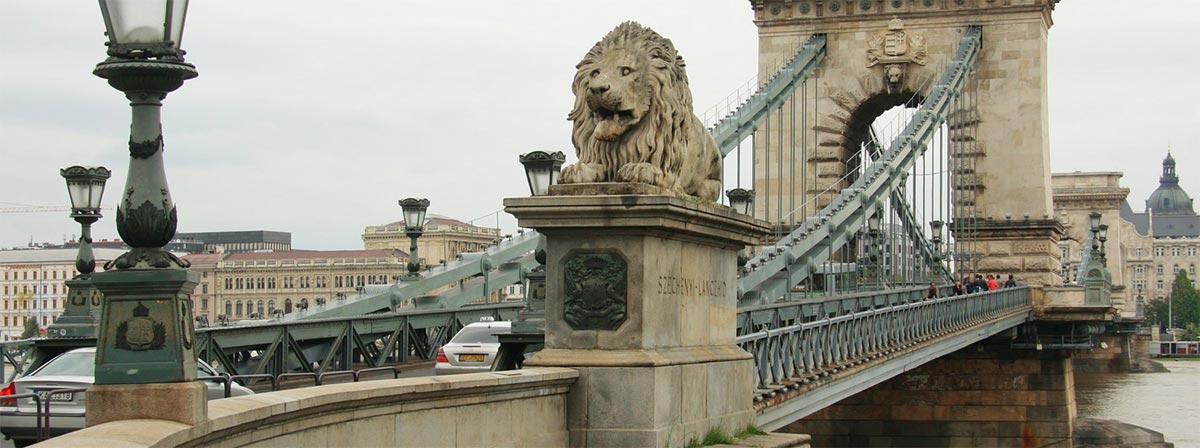 Driving in Hungary
Driving in HungaryPublic Transportation in Hungary Public transport in Hungary is both efficient and not too…
 Health Care in Hungary
Health Care in HungarySocial Insurance and Health Care in Hungary Health care in Hungary covers every…